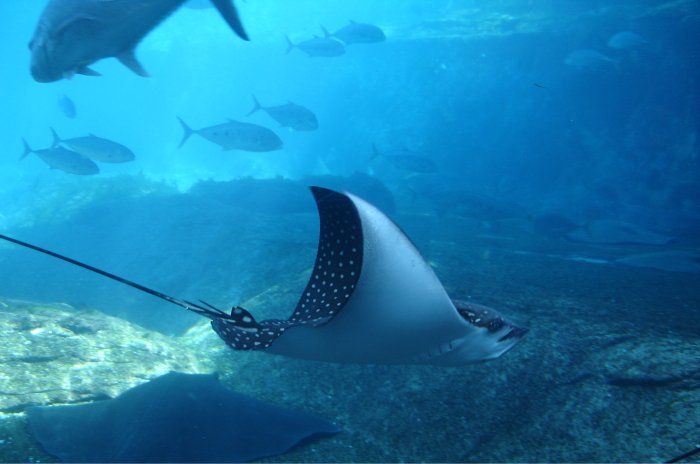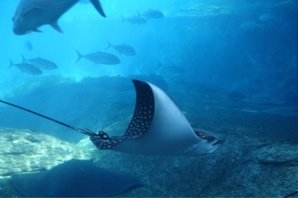The fastest population of marine animals decreased from 1970 to 1980. In the next decade, the overall situation has stabilized, but the numbers have changed in different ways in different regions of the world. The number of animals began to grow at the northern latitudes, yet continued to decline in the tropical and subtropical, says WWF.
The number of commercial fish species in the period from 1970 to 2010 fell by 50% - up to 492 species. At the same time, 459 of them are under threat because of commercial fishing, climate change, degradation or loss of habitat. Very bad is the situation with the mackerel (tuna, mackerel, bonito): for the period, their number decreased by 74%, and improvement is not expected.
The report also mentions the sea cucumber (trepang), considered a refined delicacy in Asia: this kind has almost disappeared in the vicinity of the Galapagos Islands - its population has decreased by 98%, and in the Red Sea, trepang got fewer in recent years by 94%.
The main reason for reducing the number of species of marine animals, as well as their number - by human activities, including overfishing of marine resources.
- Human activities have caused serious damage to the ocean because fishing is faster than it can recover its strength, - says the head of WWF Marco Lambertini.
According to the Food and Agriculture Organization (FAO), 29% of the world's fish stocks are on the verge of depletion. Another 61% have completely exhausted and are unable to recover.
The negative impact on ocean ecosystems has also development of extractive industries, development and pollution of coastal areas and seas. The main pollutants are the wastewater. In addition, 8 million tons of plastic gets in the ocean each year.
In this economy, many countries largely depends on the health of the ocean and its resources. About 10-12% of the population live off fishing and aquaculture. Fish and seafood are the main source of animal protein for 3 billion people.
The number of commercial fish species in the period from 1970 to 2010 fell by 50% - up to 492 species. At the same time, 459 of them are under threat because of commercial fishing, climate change, degradation or loss of habitat. Very bad is the situation with the mackerel (tuna, mackerel, bonito): for the period, their number decreased by 74%, and improvement is not expected.
The report also mentions the sea cucumber (trepang), considered a refined delicacy in Asia: this kind has almost disappeared in the vicinity of the Galapagos Islands - its population has decreased by 98%, and in the Red Sea, trepang got fewer in recent years by 94%.
The main reason for reducing the number of species of marine animals, as well as their number - by human activities, including overfishing of marine resources.
- Human activities have caused serious damage to the ocean because fishing is faster than it can recover its strength, - says the head of WWF Marco Lambertini.
According to the Food and Agriculture Organization (FAO), 29% of the world's fish stocks are on the verge of depletion. Another 61% have completely exhausted and are unable to recover.
The negative impact on ocean ecosystems has also development of extractive industries, development and pollution of coastal areas and seas. The main pollutants are the wastewater. In addition, 8 million tons of plastic gets in the ocean each year.
In this economy, many countries largely depends on the health of the ocean and its resources. About 10-12% of the population live off fishing and aquaculture. Fish and seafood are the main source of animal protein for 3 billion people.






